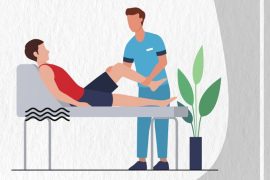Especially during the summer months when the risk of heat-related illnesses is higher. Over-exercising can exacerbate these risks and lead to various health issues, including heat stroke, dehydration, and muscle strains. It’s essential to listen to your body and recognize the signs of over-exertion, such as fatigue, dizziness, and difficulty sleeping.
While the temptation to push harder to achieve fitness goals quickly may be strong, it’s crucial to prioritize safety and avoid overdoing it. Excessive exercise can actually hinder weight loss efforts by causing fatigue, muscle strain, and increased stress hormones like cortisol, which can impede fat burning.
If you’re experiencing symptoms of over-exercising, such as persistent fatigue or trouble sleeping, it’s important to scale back your exercise routine and allow your body adequate time to rest and recover. Staying well-hydrated, avoiding excessive heat exposure, and prioritizing rest are essential for maintaining optimal health, especially during summer heat waves.
So, while staying active is important for overall well-being, it’s equally vital to exercise moderation and listen to your body’s signals to ensure a safe and effective fitness regimen, particularly during the challenging summer months.
Side Effects of Over-Exercising:
- Fatigue and Decreased Performance: Excessive exercise can lead to chronic fatigue, where the body is unable to adequately recover between workouts. This can result in decreased performance during exercise sessions and daily activities.
- Burnout: Intense workouts can lead to burnout, where individuals experience a decline in performance and motivation. This can be frustrating and may impact overall well-being.
- Dehydration: Sweating more during intense workouts can lead to dehydration if fluid intake is insufficient. Symptoms like dry mouth or dizziness should not be ignored, as they could indicate dehydration.
- Heat Stroke: Overexercising in hot weather can increase the risk of heat stroke, a severe condition where the body’s temperature regulation fails. Symptoms include increased heart rate and a sudden rise in body temperature. Heat stroke can be life-threatening and requires immediate medical attention.
- Insomnia: Overexercising can lead to the release of stress hormones like cortisol, which may disrupt sleep patterns and contribute to insomnia. It’s essential to prioritize rest and recovery to prevent sleep disturbances.
- Social Withdrawal: Excessive exercise can interfere with social activities and relationships, leading to social withdrawal or isolation. Individuals may prioritize exercise over social engagements, impacting their overall quality of life.
These side effects highlight the importance of listening to your body and maintaining a balanced approach to exercise, especially in challenging conditions like hot weather. It’s crucial to stay hydrated, take breaks when needed, and adjust your workout intensity as necessary to prevent overexertion and promote overall health and well-being.
Disclaimer:
The information contained in this article is for educational and informational purposes only and is not intended as a health advice. We would ask you to consult a qualified professional or medical expert to gain additional knowledge before you choose to consume any product or perform any exercise.







